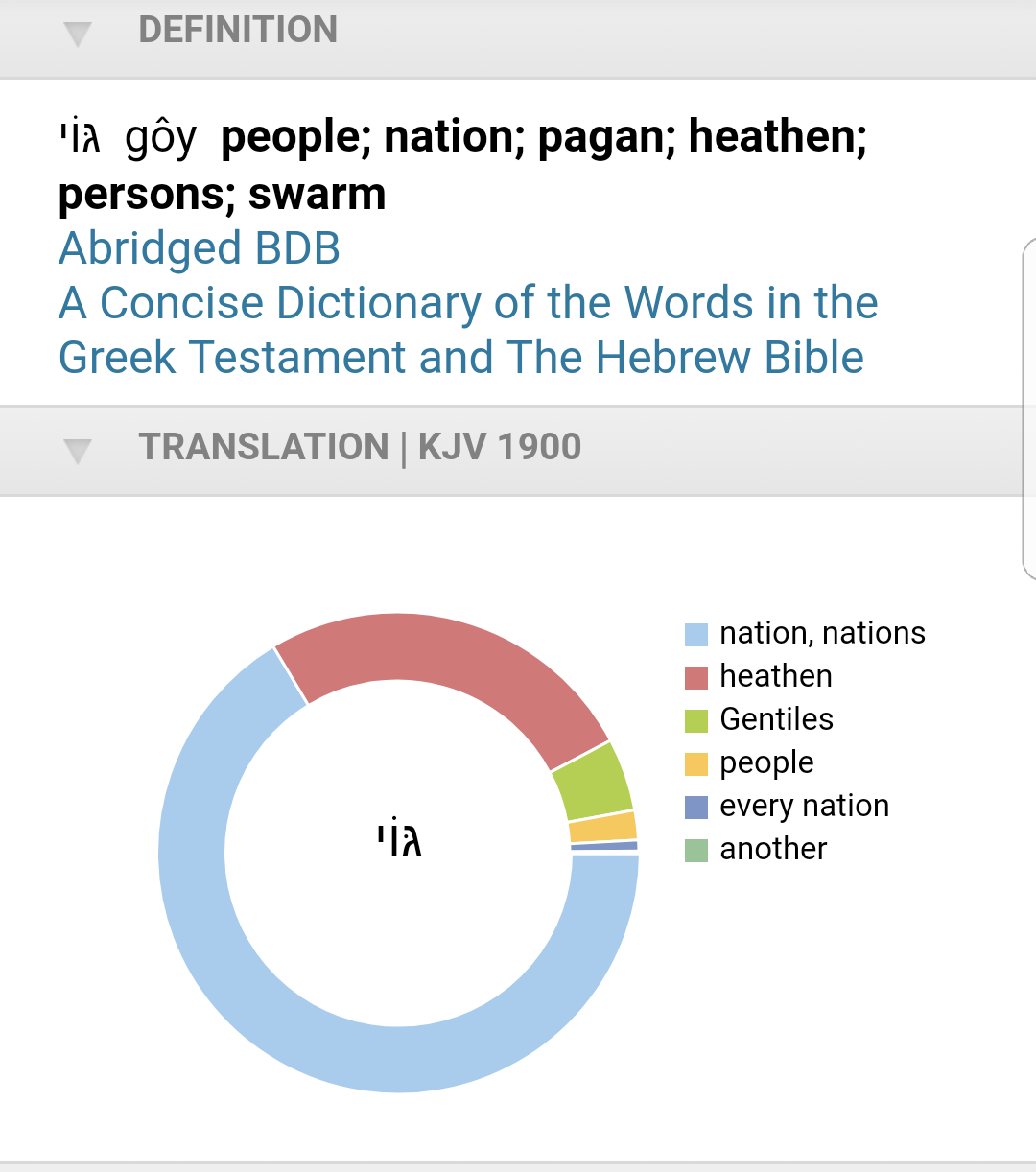The Psalms 2a: The Reign of the Lord's Anointed (Verses 1-4)

This is one of those Psalms that I’ve always been attracted to. It’s no secret to anyone who knows me that I don’t turn away from discussions on the New World Order, or on the conspiracies of those in power. This psalm lends itself to those discussions! Same as the last time, we’ll read through the entire psalm, and then we’ll dig a little deeper by looking at individual verses. This time we’re going to start out with the KJV and then we may use other translations when we take a closer look. Let’s get started!
The Reign of the Lord's Anointed
1 Why do the heathen rage, and the people imagine a vain thing?
2 The kings of the earth set themselves, and the rulers take counsel together, against the LORD, and against his anointed, saying,
3 Let us break their bands asunder, and cast away their cords from us.
4 He that sitteth in the heavens shall laugh: the Lord shall have them in derision.
5 Then shall he speak unto them in his wrath, and vex them in his sore displeasure.
6 Yet have I set my king upon my holy hill of Zion.
7 I will declare the decree: the LORD hath said unto me, Thou art my Son; this day have I begotten thee.
8 Ask of me, and I shall give thee the heathen for thine inheritance, and the uttermost parts of the earth for thy possession.
9 Thou shalt break them with a rod of iron; thou shalt dash them in pieces like a potter's vessel.
10 Be wise now therefore, O ye kings: be instructed, ye judges of the earth.
11 Serve the LORD with fear, and rejoice with trembling.
12 Kiss the Son, lest he be angry, and ye perish from the way, when his wrath is kindled but a little. Blessed are all they that put their trust in him.
So much like when we looked into Psalm 1, the translation I used is because I like the way it treats one specific thing. One of the things people like about the old King James text is the high-brow language it uses, and how it’s almost Shakespearean when read for effect. Sometimes I think that this actually hurts the KJV but, in this instance, the effect it has on an audible reading of the text is second to none.
Read it out loud, like you’re on stage performing Hamlet:
1 Why do the heathen rage,
And the people imagine a vain thing?
Here the word translated ‘heathen’ is the Hebrew word goyim (גוים). Most of us have heard the word ‘goy’ before, if only in passing. Most Christians have a decent understanding that goy, to some extent, means ‘gentile’. The NKJV uses the word ‘nations’ here, which is actually how ‘goy’ is most often translated.

But one of the most basic translations for ‘goy’ (or, gentile) is ‘out of covenant’. So what this verse is saying is that all of those who are not in covenant, everyone who is out of covenant with God, are the ones who are plotting against the Creator of the universe. Unrelated to this verse but related to the word ‘goy’ and its translation as gentile, we should keep this covenant thing in mind when we think about being gentile believers. I can’t really understand the concept of being an out of covenant believer of the new covenant. But that’s neither here nor there.
2 The kings of the earth set themselves,
And the rulers take counsel together,
Against the LORD, and against his
Anointed, saying,
3 “Let us break their bands asunder,
And cast away their cords from us.”
This, to me, is one of the most outrageous thoughts you could possibly think. Think about it in an eschatological mindset. If this psalm is talking about the coming of Messiah, which it certainly appears that way, then we have to accept that this verse should be looked at in an ‘end-times’ view. In fact, when the KJV was retranslated into the NKJV there are quite a few words here which are capitalized, which weren’t capitalized in the original KJV, including the word both instances of ‘their’ in verse 3. This shouldn’t be given too great of authority, since there were no capital letters in the original Hebrew. What we can take this to mean is that, at least in the eyes of the NKJV translators, this was viewed as prophetic of Messiah. It should also be mentioned that, according to the Hebrew way of thought, prophecy is pattern. So this being about an end-time Messiah doesn’t preclude it from also being about a king of ancient Israel, whether that be David or any of the other kings. Kings were anointed by God to lead the nation. But we should also remember that Messiah (and Christ) means ‘Anointed’.
How crazy is this? The rulers of the world are planning a war against the Creator of the universe. The words here seem to indicate that they know that they’re plotting against God, and against His Messiah, against His Son. You can look around at the world today and you can see this happening. You can see, more and more, people on TV openly blaspheming God. People are less and less scared of making fun of the Lord of creation. But, usually, they’re making fun of Him because they believe He doesn’t exist. So is that what’s in view in this verse?
Or… are the kings and rulers in this piece of Scripture actually making plans for war against a God who they believe exists? This is why I find these verses so amazing. If a straight forward interpretation of this passage is the correct one, then you have kings and rulers who are planning against a God who they believes actually exists, and they think they can win! At the time that this psalm would’ve been written, this is exactly what would’ve been happening. The only difference is that the kings and rulers would’ve been fighting on behalf of their own gods.
I guess we shouldn’t automatically assume that today’s elite aren’t fighting on behalf of gods of their own. In Deuteronomy 32:17 we read in Moses’s song about Israel seeking after other gods (“They sacrificed unto devils, not to God; to gods whom they knew not, to new gods that came newly up, whom your fathers feared not.”). This verse indicates that the other gods that people put up for themselves are not only constructs, but they have personality behind them. They are the devils, the shedim (שֵּׁדִים). This word can simply mean what we think of as ‘demon’, but it can go further to even having a relation to the word which we get the title ‘satan’ from. Adam Clarke’s commentary on the Bible says this:
“The original word שדים shedim has been variously understood. The Syriac, Chaldee, Targums of Jerusalem and Jonathan, and the Samaritan, retain the original word: the Vulgate, Septuagint, Arabic, Persic, Coptic, and Anglo-Saxon, have devils or demons. The Septuagint has εθυσαν δαιμονιοις, they sacrificed to demons: the Vulgate copies the Septuagint: the Arabic has sheeateen, the plural of Sheetan, Satan, by which the rebellious angels appear to be intended, as the word comes from the root shatana, he was obstinate, proud, refractory, went far away. And it is likely that these fallen spirits, having utterly lost the empire at which they aimed, got themselves worshipped under various forms and names in different places. The Anglo-Saxon has devils.”
So we see that other entities exist behind the scenes of world affairs. We get an even better picture of this in the tenth chapter of the book of Daniel where an angel (probably Gabriel, since the message he brought was heralding the coming of Messiah) talks throughout the chapter about territorial spirits waging war with the angels of God (“Then he said, "Do you know why I have come to you? And now I must return to fight with the prince of Persia; and when I have gone forth, indeed the prince of Greece will come.” Dan 10:20).
But what does this all mean when we put it in the context of how it should affect us? Are there real gods behind the powers of this world? Well, Ephesians 6:12 is pretty straight-forward on this one, “For we do not wrestle against flesh and blood, but against principalities, against powers, against the rulers of the darkness of this age, against spiritual hosts of wickedness in the heavenly places.” So, yes, there are real entities that we’re struggling against! And, no, these are not the villains that you can see right in front of you! Should we be scared? Well, I guess it depends on who you’re putting your faith in. If you’re trusting in the spiritual host of wickedness then you should probably be very frightened. Very, very frightened.
But…
If your faith is in the God of Abraham, the God of Isaac, and the God of Jacob then you should have no fear whatsoever. That doesn’t mean that you should take your enemies lightly. For sure, put on the whole armor of God before entering into your day, but our Father and our King who sits on the throne in heaven takes them lightly. How lightly? He laughs at them in derision. In case you don’t believe me let me close this section by looking at one more verse in our second psalm.
4 He that sitteth in the heavens shall laugh:
the Lord shall have them in derision.
That’s how much fear these spiritual hosts of wickedness cause in our Father and King. He literally is laughing at them while sitting on His throne.
OK, we’ve only made it through 4 verses, but we’ve also made it through 4 pages so we’re going to call this part one of psalm 2, and get to work on the part 2. Hey, I never promised that these are gonna be short. Just wait ‘til we get to Psalm 119…
But the important part here is… what do you think? Do you think that we’re living out this psalm right now? Are we watching the kings and rulers plotting against the LORD and His Messiah?
What are your thoughts?
Until next time…
Shalom!
The original post is linked below:
http://thepoiema.blogspot.com/2017/08/the-psalms-2a-reign-of-lords-anointed.html
I like this post, you have my vote, by the way,
thank you for stopping by and voting on one of my post AMEN
really appreciate it.I started following you @mannyfig1956
Thanks for the upvote! I'm still figuring this whole Steemit thing out but it seems like a great new platform! I'll stop back and check out more of your posts!